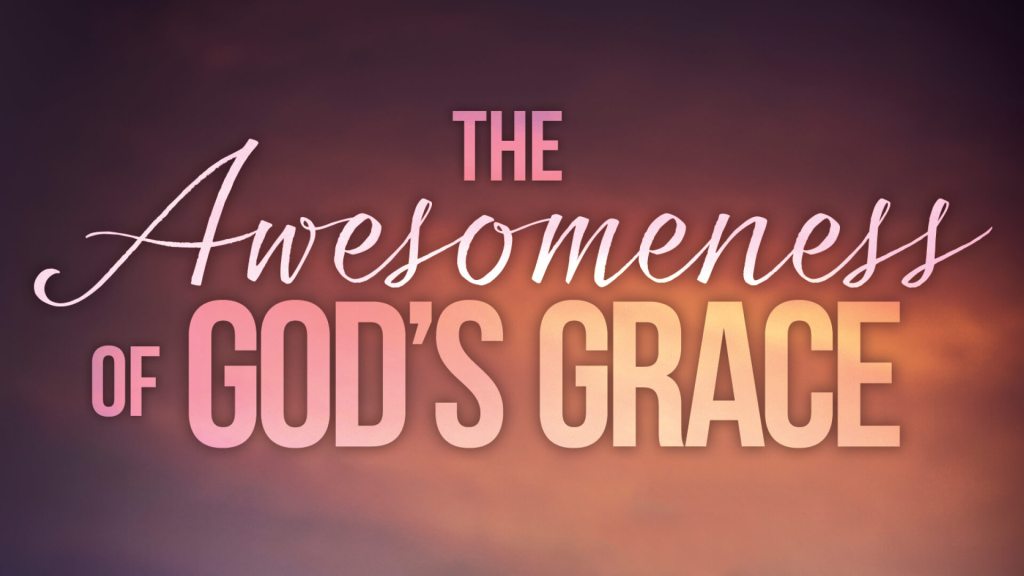It has been said before, and it is worth repeating: the gospel is not good news at all if most, or even many, will spend an eternity suffering in hell. Thankfully, such a notion is not the witness of scripture. The gospel really is good news in that all of creation will eventually be reconciled to God. This is most systematically confirmed by the Apostle Paul in his Letter to the Romans and his other epistles, as well as in the Gospels and in the Book of Revelation. Moreover, when the Scriptures are viewed as a whole, we see a thread of universal reconciliation beginning in the Old Testament and culminating in the New Testament.
To be sure, there are more explicitly universalist passages in the New Testament, but those passages are often rooted – as we would expect – in Old Testament foundations. We can already begin to see in Israel’s election as the people of God through Abraham that this is not election as a Calvinist would understand it, but rather an election to an evangelistic purpose:
“Now the Lord had said to Abram, get thee out of thy country, and from they kindred, and from thy father’s house, unto a land that I will show thee, and I will make of thee a great nation, and I will bless thee, and make they name great; and thou shalt be a blessing: and I will bless them that bless thee, and curse him that curseth thee: and in thee shall all the families of the earth be blessed” (Genesis 12:1-3).
As it stands, this passage is not explicitly universalist, but it does begin laying the foundation for an inclusive and outward understanding of election. The people of Israel are not elected to be an exclusive selection of “the saved,” but rather are chosen to bring blessing to “all families of the earth.” It is informative here to recognize the Apostle Paul’s own usage of this passage in Galatians 3:8, which reads, “And the scripture, forseeing that God would justify the heathen through faith, preached before the Gospel unto Abraham, saying, ‘In thee shall all nations of the earth be blessed.’”
While the thread begins with Abraham in Genesis, it is most fully formed in the prophet Isaiah: “I will give you as a light to the nations, that my salvation may reach to the ends of the earth” (Isaiah 49:6). For Isaiah, the elect are chosen for the specific purpose of bringing the message of salvation to the world. Again in Isaiah 42:6, we read, “….I have given you as a covenant to the people, as a light to the nations.” The prophet was again quoted by New Testament authors in the Book of Acts as Paul and Barnabas were preaching God’s salvation to the Gentiles: “For so hath the Lord commanded us, saying, I have set thee to be a light to the Gentiles, that thou shouldst be for salvation to the ends of the earth” (Acts 13:47).
So far, we see that election should not be understood as categorization of those who are “in” and those who are “out,” but rather as a calling to spread the good news of God’s universal plan of salvation. Not surprisingly, then, this outward mission of the elect results in a prophetic vision of all nations and peoples eventually coming to praise and worship God, even to the bowing of individual knees and the confession of individual tongues. Just like any good book, the Bible begins with hints and partial insights into what is coming, and what is coming is comic reconciliation.
The Lord “will gather all nations and tongues, and they shall come and see his glory” (Isaiah 66:18). Again, “look unto me, and be saved, all the ends of the earth: for I am God and there is none else. I have sworn by myself, the word is gone out of my mouth in righteousness, and shall not return, that unto me every knee shall bow, every tongue shall swear” (Isaiah 45:22-25). I think the absolute conviction of this passage is often overlooked, even by universalists. God is literally swearing by his own name that every single knee will bow and every single tongue confess his Lordship. the infernalist must ask, “Is God a liar, or will he actual do what he says he will do?”
Even Israel’s worst enemies are prophesied to eventually be reconciled to God. The nation of Egypt will be healed by God despite keeping the children of Israel in captivity (Isaiah 19:22); the Midianites will be reconciled to God (Isaiah 60:6); and Sodom and Gomorrah will be restored (Ezekiel 16:53). The thread is becoming clearer, now, that God’s intentions are to restore all peoples and nations and that it has absolutely nothing to do with their own merit, but is rather due to the gracious depths of God’s love and mercy. As to this unmerited grace, I can agree with the Calvinists, but it not just for a small “elect.” It is for the entire human race.
What is foreshadowed in the Old Testament fully emerges in the New Testament. The story of redemption is the story of cosmic reconciliation with God. From the original garden of Eden, out of which our human parents were cast, to the new Jerusalem, into which all are invited through perpetually open gates (Revelation 21:25), God’s intention to save every single human being becomes explicit. In Paul’s epistles and in the book of Revelation, there is such tight parallelism between the first Adam and and the second Adam (i.e. Christ), between Eden and the New Jerusalem. This is deliberate and explicitly crafted parallelism. We see both ends of the story arc: universal exile on the one hand and universal reconciliation on the other.
Revelation 21-22 shows that this universal reconciliation is an ongoing process, both in this life and after this life. Whereas Eden’s gates were closed and garden, the gates of the new Jerusalem are always open and unguarded. There are still some who are lost outside those gates; however, we are told that “the gates shall bring the glory and honor of the nations into it” (Revelation 21:26) and that the tree of life “bares fruit every month for the healing of the nations” (Revelation 22:2).
I am not sure where most modern Christians got their ideas of heaven, but it could not have been Revelation 21-22. In Revelation, we have an already, but not yet, kind of new heaven and new earth. Entry into it is an ongoing process. The return from exile is happening at different rates for different people, but it is happening to everyone. Restoration seems to be a process. Of course, this aligns with Paul’s views as well: Christ is ascended and victorious, filling all and reconciling all things to himself. For Paul, these things have already happened, but they are also continuing to happen in human history and will continue to happen until God gets what God wants.
This all makes sense, of course, when we consider Jesus’ teaching on how the kingdom of God is like leaven. Leaven does not transform the dough all of a sudden, but takes its time and works its way through the dough until the whole lump is transformed (Matthew 13:33). God is in the process of reconciling all things to himself through Christ. The leaven is working, and the gates remain open. From start to finish, we see that the overarching story of scripture is one of exile and return, and the gospel is precisely that, just as all were exiled, all will eventually return.




Leave a comment